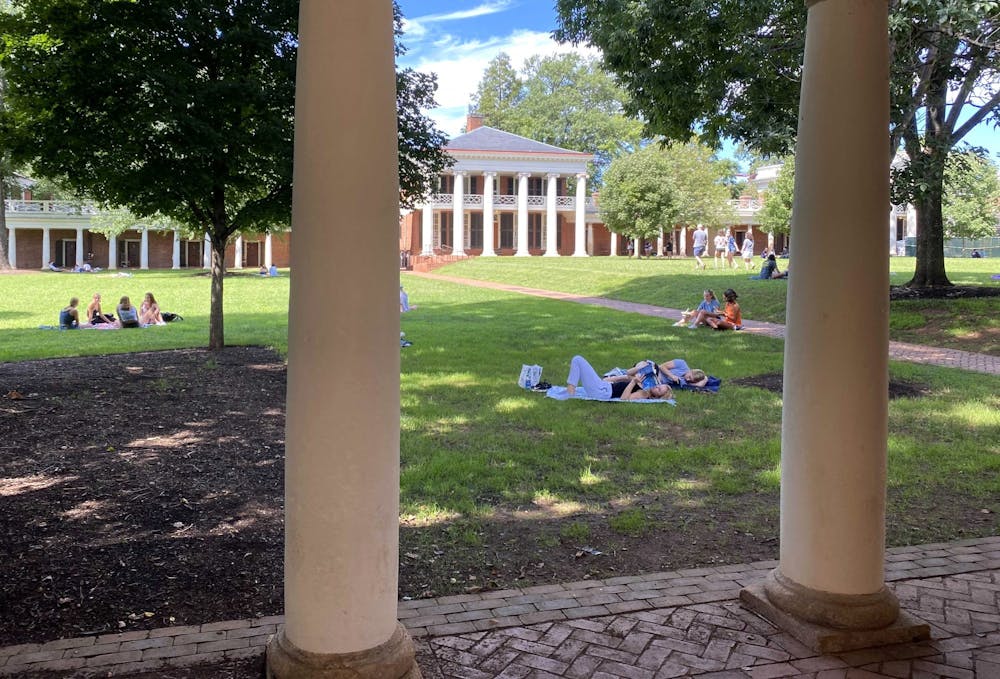At a special session meeting Sunday night, Student Council passed SR 21-39 denouncing the University’s decision to rename and rededicate the Frank Hume Memorial, insteading of removing it in its entirety. The representative body also passed SR 21-40, a resolution calling on Housing and Residence Life to contract with the housing service Rent College Pads once its contract with Apartments.com expires at the end of this year.
SR 21-39 was sponsored by Tichara Robertson, representative and rising second-year College student, Gabriela Hernandez, chair of the representative Body and rising third-year College student and Abel Liu, Student Council President and rising fourth-year College student. The resolution passed with 16 yeas and 1 abstention.
SR21-39 comes in the wake of the Board of Visitors’ decision earlier this June to rededicate the Frank Hume Memorial, more commonly known as the Whispering Wal, instead of removing it in its entirety. The wall is a memorial to Frank Hume, a Confederate soldier and Virginia delegate, and was erected in 1938. The Board’s decision was influenced by a recommendation from the Naming and Memorials Committee, which reasoned that, while it is not appropriate to honor Hume, the structure of the wall should be left to continue a conversation about the University’s history.
The Naming and Memorials Committee held a public listening session in April to hear from community members on what should be done with the wall. During the listening session, over 20 students, alumni and community members expressed support for completely removing the wall. There were no speakers in favor of rededication and recontextualization.
Per the Board’s decision, the Whispering Wall will no longer bear Hume’s name, the inscription will be replaced with blocks of color to mark its previous presence and the history of the memorial will be included in a digital recontextualization of monuments and memorials on Grounds.
“We demand that the University listen to proposals of students of color on Grounds who are constantly affected by the racist history that the University has historically fostered and protected,” the resolution reads.
The Board’s decision came after the Minority Rights Council lobbied for months for the wall’s complete removal. After the Board released its decision to rededicate the wall, the MRC issued a statement condemning the University for not listening to Black students and stating that the MRC would continue pushing for removal of the memorial. SR 21-39 stands in support of the MRC’s statement.
“The University was given the opportunity to support its Black students and chose not to,” Robertson said during Sunday’s meeting. “They claim that this change will promote nuanced and complex historical understandings and occasional debate, which is disheartening because it implies that this glorified image of the Confederacy can be continuously displayed in the case that it provokes complex debate.”
Other students also spoke on the negative impact of leaving the wall’s structure standing during the public comment section of the meeting.
“It’s not even a celebration of history,” rising third-year College student Amanda Campbell said. “It’s really antagonistic and I believe that they should be taken down.”
After passing SR21-39, the representative body moved on to discuss SR21-40, which aims to address struggles many University students — particularly first years — have with finding affordable housing off Grounds. According to HRL, the estimated cost of rent for a two-bedroom apartment is $1,601, and $2,566 for a four-bedroom apartment. Housing prices in Charlottesville have risen an average of 5 percent every year since 2012.
Currently, the HRL partners with Apartments.com for its website to help students find off-Grounds housing. Apartments.com is a subsidiary of Off Campus Partners, LLC.
Rent College Pads would “enable the University to better meet students’ housing needs, reduce housing costs by connecting students with a fuller range of property options, and equip students with the valuable tools necessary to make informed housing decisions,” reads SR21-40.
In comparison to Apartments.com, Rent College Pads has a larger catalog of properties, mechanisms to hold landlords accountable, a badge system listing information about apartments as well as a rating and review system and their renter education platform, which the Student Council’s Community Engagement Agency believes will make finding off-Grounds housing more accessible for students. The Community Engagement Agency is a part of Student Council’s Cabinet that works to build relationships between the University community and the greater Charlottesville Community.
The resolution was sponsored by Rand Perry, representative and rising fourth-year Batten student, and was introduced on behalf of the Community Engagement Agency. It was passed with 16 yeas and 1 abstention.
During the meeting Sunday, Perry made the case that many students need better resources to navigate finding apartments.
“Students, especially first-year students, often sign off Grounds leases very early in the fall with extremely limited resources available to them,” Perry said. “Students often report difficulties such as sky-high rents and predatory landlords as well.”
Rent College Pads already serves several other American universities, including the University of Texas at Austin, Washington State University, and George Mason University.
The Community Engagement Agency has met with the director of Rent College Pads and has reached out to Housing and Residence Life, but HRL has not communicated much on the issue, according to Liu.
“Our current off-Grounds housing site does not have the best interests of students in mind,” said Chloe Estrada, co-director of the Community Engagement Agency and third-year McIntire student. “It prioritizes landlords by allowing them to autonomously sign up and list their properties on the site. Not only does this lead to an incomplete and ineffective list of properties for students to view, it also means that landlords are able to list without going through any screening measures.”
In addition, the University would not pay Rent College Pads for its services — instead, landlords would pay the company, and profits would be divided between the company and the University.






